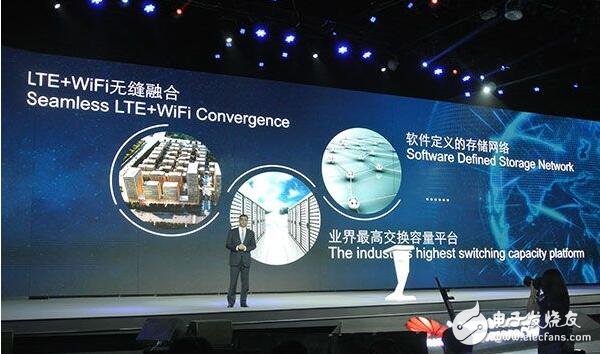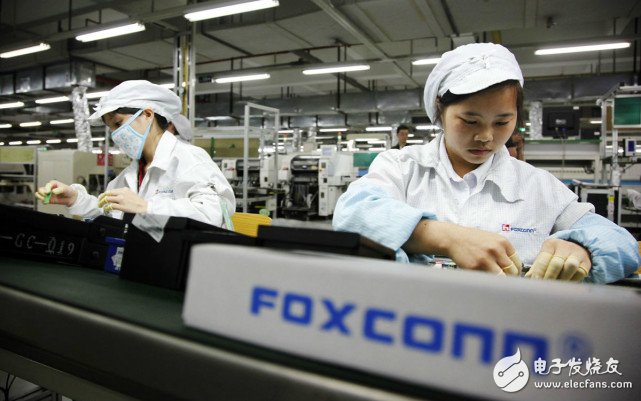Jiang Wangcheng, vice president of Huawei's MarketTIng and Solutions Department, said on the 15th that NB-IoT has gradually matured and is now commercial. Jiang Wangcheng also revealed the progress and plans of Huawei NB-IoT chip module, including its highly integrated Boudica 120 chip will be shipped in large quantities at the end of June; Boudica 150 (supporting 1800M) can be tested in the second quarter, small batch commercial in the third quarter, Large-scale commercial shipments in the fourth quarter.
Jiang Wangcheng, vice president of Huawei's MarketTIng and Solutions Department, said that the IoT era of unified architecture is coming, and NB-IoT is continuing to evolve into R14 and R15 as the basis of 5G LPWA.

Comments: Huawei is actively strategically deploying the Internet of Things (IoT). The Boudica 120 and 150 chips are the flagship products of Huawei's IoT chips. The chip, in cooperation with foundry partner TSMC, will make its low-power IoT chip shipments in the second half of the year truly work. The large-scale shipment of the chip means that the chip is fully mature in terms of product performance, stability, process and production support. The abundant supply capacity of the chip will drive the explosive growth of business application innovation.
The patent war between Qualcomm and Apple has been in a stalemate. Recently, it was reported that Qualcomm has sued four Apple foundries such as Foxconn (Hon Hai) Group for refusing to pay royalties. The patent war between Qualcomm and Apple has been upgraded, and it is said that this will indirectly put pressure on Apple. This move has caused a serious escalation of tensions between the two companies, which will cause market disruption regardless of the outcome.
Qualcomm said it has filed a lawsuit in the Federal District Court for the Southern District of California, accusing Apple of manufacturing four of its iPhones and iPads worldwide - Fu Zhi Kang Group Co., Ltd. and Hon Hai Precision Industry Co., Ltd. (collectively Foxconn, Heshuo United Technology Co., Ltd., Wistron and Compal Computer Industry Co., Ltd. - violated their license agreement and other commitments with Qualcomm and refused to use the technology licensed from Qualcomm Paid.

Since Qualcomm's licensing agreement for the iPhone and iPad was not signed directly with Apple, but with the foundry that produced the equipment, it could not directly sue Apple for refusing to pay royalties.
In the prosecution, Qualcomm accused Apple of "carefully directing" its foundry vendor's refusal to pay royalties. The indictment stated that "in addition to not paying the defendant the royalties that should be paid to Qualcomm, Apple also prevented the defendant from paying royalties to Qualcomm. What's more, Apple also agreed to violate the agreement with Qualcomm for the foundry. The loss of the bill, further indicating the strength of Apple."
At the end of April, Apple said it would stop paying Qualcomm’s iPhone-related premiums until the parties resolved the legal dispute.
Apple's refusal to pay royalties led Qualcomm to be forced to lay down the financial outlook for the third quarter of fiscal year 2017. Qualcomm admitted that the contract manufacturer was unable to pay Qualcomm-related royalties because Apple detained the royalties payable to contract manufacturers.
Comments: Qualcomm's performance analysis shows that patent fees are an important source of profit. At this stage, Qualcomm's patent licensing business is three times more profitable than chip sales. Qualcomm estimates that about 1.37 billion devices worldwide that use 3G and 4G must pay royalties. In Apple's case, the iPhone's high profit is the core of Apple's annual profit. Apple CEO TIm Cook recently stated that it is arguing with Qualcomm's patent dispute that Apple does not deny Qualcomm's contribution to standard essential patents, but Qualcomm's components only account for iPhone one. In a small part, the premium is charged as a percentage of the iPhone's price. Apple is going to change the current agreement by dispute resolution, reduce the patent fee, and choose to use Intel's chip is also an alternative.
RP-SMB Connector,SMB Antenna Conector,SMB Coaxial Connector,SMB Connector Types
Xi'an KNT Scien-tech Co., Ltd , https://www.honorconnector.com
